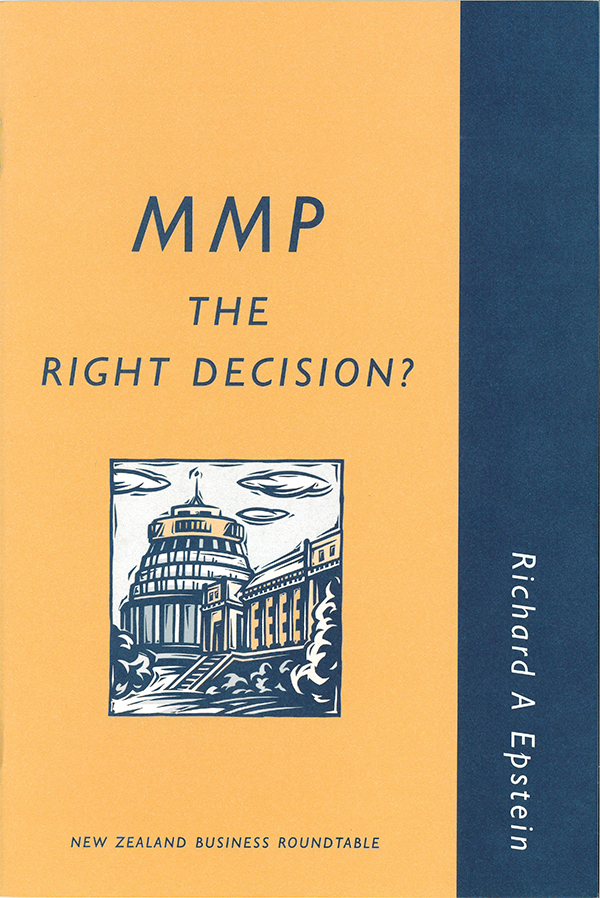I begin this talk with a now standard disclaimer: I know comparatively little about the New Zealand political setting, so I shall step back from the detail of specific institutions to consider the general question of how best to design voting systems. The basic principles can then be applied to various issues concerning New Zealand's mixed member proportional (MMP) electoral system.
The first point is a note of caution: voting systems within modern democratic politics are highly imperfect arrangements, even when operating at their best. In many respects the ideal institution for organising our social relations is the market, even though it can never entirely displace government. Market transactions do not pose the risk of majority coercion of a minority interest, a risk that can only be reduced but not eliminated by a supermajority rule or other procedural devices such as bicameralism or an executive veto. Instead, a market economy relies on unanimous consent. All parties to a transaction must believe they stand to benefit from an agreed-upon exchange of goods or services. If somebody does not like a contract that has been offered, they need not proceed with that particular transaction. But once agreement has been reached between parties, then the state's role is to enforce the agreement in accordance with its terms. The process of contract formation goes a long way towards negating the problems of faction, intrigue or illicit appropriation of resources.



